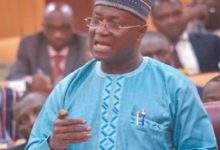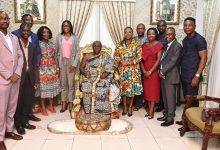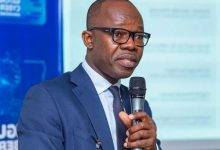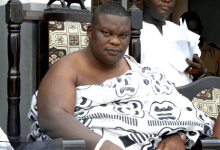The proper growth and development of children is very fundamental to securing a vibrant labour force for any nation. It must therefore be stressed that any nation that downplays the proper upbringing; safeguarding and the protection of children is bound to fail in its developmental agenda.
In spite of this potential , many communities in Ghana including other parts of Africa do not pay much attention to the upbringing of children but rather expose them to abuses such as sexual abuse , physical , emotional , neglect and exploitation.
Child abuse as defined by the World Health Organization (WHO) is “all forms of physical and emotional ill-treatment, sexual abuse, neglect and exploitation that results in actual or potential harm to the child’s health, development or dignity.”
In Ghana, child abuse takes the form of sexual abuse which entails forcing or enticing a young person to take part in sexual activities. This phenomenon is very common in our communities. Apart from child labour which also involves using children for fishing in the lakes , farms among others , child marriage , harmful traditional practices like Trokosi and Female Genital Mutilation (FGM), child neglect and child trafficking as well corporal punishment are all forms of child abuses which are common in Ghanaian households.
Also, it is very instructive to note that child abuse consists of any act or failure to act, that endangers a child’s physical or emotional, health and development. Child Abuse is also sometimes referred to as child maltreatment.
Child Abuser is any person regardless of age, race, sex, creed or colour who deliberately commits or perpetuates any act constituting child abuse. A child abuser is usually a person known or trusted by the Child –can be family member, relative, friend, neighbour, teacher, baby seater or a caregiver. He or she may also be a stranger to the child. Study shows that many child abusers have ever been victims of child abuse before.
In Ghana the legal definition of a child refers to a person below the age of 18 years unable to care for or protect self from abuse, neglect, cruelty or exploitation due to mental or physical disability.
According to the 2017 Criminal Investigations Department Annual Crime Statistics, 1630 cases of sexual abuse of children were reported in 2015 alone. In 2016, 1,341 cases were reported while 1,685 were reported in 2017.
Also 2016 report revealed that a total of 5,752 children were defiled in Ghana between the periods of 2010 to 2014. The same report mentioned that 342 of the cases were perpetrated by family members of the victims.
At –a- just- ended two day Stakeholder Training Programme on Safeguarding and Protection of Children and Vulnerable Adults in Upper East Region, jointly organized by the Catholic Education Unit of the Navrongo-Bolgatanga Diocese in Bolgatanga and the Child Protection Team of the Diocese in the Conference Hall of the Catholic Secretariat in Bolgatanga in the Region , it was emphasized by many of the stakeholders that majority of parents and guidance including the society and the church have failed to protect and safeguard children and the vulnerable adults .
The programme funded with the support from the Hilton Foundation through the Daughters of Charity of Saint Vincent De Paul and World Vision Ghana was to equip participants to be aware of Culture Myths that make children and vulnerable adults to be sexually abused , to identify the lines of collaboration available to stakeholders in protecting children and vulnerable adults ,identify children and vulnerable adults who may be at risk of harm and to know the laws on child (Sexual) abuse in the country and the church .
The Stakeholder Training Programme attracted stakeholders from the Social Welfare and Community Development , Department of Gender and Children , the Clergy, Traditional Authorities, the Ghana Education Services (GES), the security agencies including the Bureau of National Investigation, (BNI), the Ghana Immigration Service, the Police , Health , the Media Civil Society Organization among others.
Whilst some of the stakeholders alleged that some fathers and mothers often force their daughters and sons to have sexual relationships with them, others also alleged that some religious figures belonging to the Christians, Moslems and Traditional sects often defile some young people who seek their counsel and support.
One of the interesting revelations of child abuse that was made at the two day stakeholder Training Programme was that aunties and uncles also sometimesforce theirrelations daughters to sexually satisfy their customers in their “pito bars” at odd hours.
“We have heard of incest –fathers with his 12 years old daughter and a mother with her 10 year old son. Some aunties and uncles force their relations daughters to sexually satisfy their customers in their pito bars’’, some of the stakeholders alleged.
Delivering her presentation at the forum, the Regional Manager of the Catholic Education Unit and a member of the Child Protection Team, Reverend Sister BernardinePemii, stressed that these malicious acts did not only serve as threats to the child’s basic human rights and the achievement of the Sustainable Development Goals, but also lead to the sadness, loneliness, helplessness and desperation of the victims.
The Regional Manager stated that no amount of investment in education would yield the desired result if parents did not secure the safety and the protection of their children at home.
“It only behooves on parents to consider aspects of cultures that are inure to the development of the child and discard the obnoxious ones”, she indicated.
ReverendSister Pemii who indicated that from home to the school and to the church all are the duty of parents and guardians to ensure that their children are protected, lamented that many parents failed to protect their children.
Whilst she schooled the stakeholders on the symptoms of emotional abuse of children as conveying to the children that they are worthless, ReverendSister Pemii, mentioned the signals of physicalabuse as sudden speech disorders, wetting and soiling, signs of mutilation and frequent vomiting of the victims.
She explained that Sexual abuse involves physical contacts including penetrative andcited rape, buggery or oral sex or non –penetrative sex as some of the forms of sexual abuse.
Reverend Sister Pemiistated that the indications of sexual abuse include itching in genital areas, stained or blood underwater ,pain of urination , difficulty in walking or sitting and bruises in inner thighs or buttocks.
One of the Christian Faith Based Organization that had been fighting the menace in the country is the Navrongo-Bolgatanga Catholic Diocese in the Upper East Region which also operates in some parts of the Northern Region.
Apart from engaging and offering series of training programmes for stakeholders including the above mentioned one on how to help curb Child Abuse, the Diocese had developed its own Child Protection Policy (CPP) Document, drawing its contents from the Child Protection and Family Welfare Document of the Gender Ministry and UNICEFto protect children, young people and vulnerable adults.
Besides the above, the Diocese had also constituted Diocesan Child Safeguarding and Child Protection Teams and launched the CPP document for all Catholic Schools in the Upper East Region and parts of Northern Region which are all operational.
Additionally, the Diocese had also inaugurated Diocesan CPP Teams charged with the responsibilities of receiving reports about allegations on child abuse, providing advice and guidance, liaising with other agencies and monitoring the progress of cases to ensure that they are dealt with as quickly as possible.
In conclusion, whilst lauding the efforts of the Navrongo-Bolgatanga Catholic Diocese for complementing government’s effort to help curb child abuse, there is the urgent need for other Faith Based Organizations, CSOs, the Corporate World and the development partners to join the crusade to fight against the canker.
By SamuelAdadi Akapule






